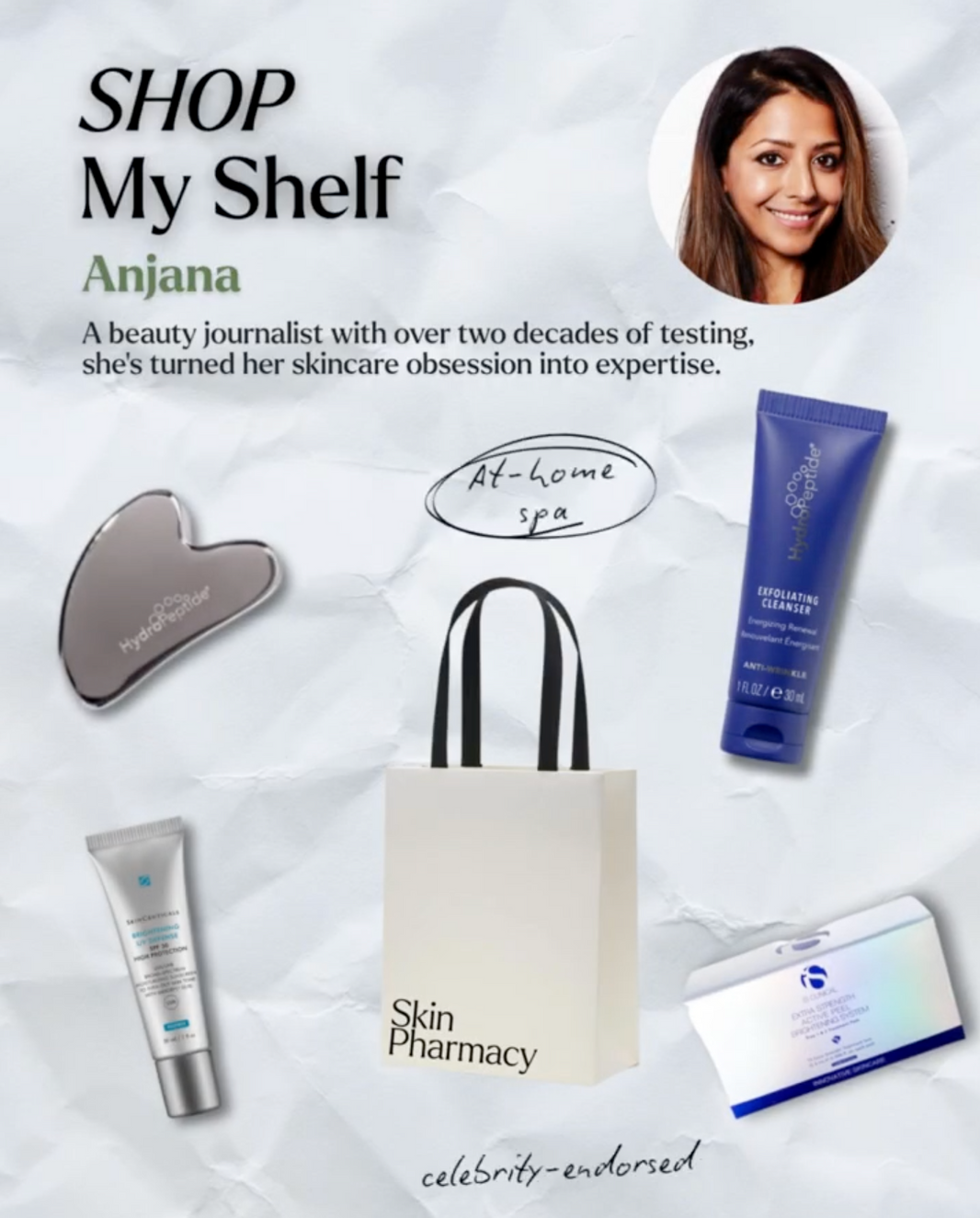A gold standard skincare active that treats a plethora of concerns, retinol is loved by skincare experts around the globe. But despite its popularity, it’s still largely misunderstood by the masses (even by those who use it).
What is retinol?
Just like retinal, retinyl, adapalene, tazarotene and tretinoin, retinol is a retinoid, aka a derivative of vitamin A. “Some retinoids are only available on prescription, but retinol can be found in a host of non-prescription skincare, making it an accessible active that still packs a potent punch,” shares Mahmoud Metwally, Chief Pharmacist at Skin Pharmacy.
How does it work?
An ingredient that offers dual action repair is the best way to describe this tried-and-true complexion perfector. Since vitamin A is an antioxidant, retinoids boast the ability to neutralise free radicals (compounds created by environmental stressors like pollution, smoke, and UV) before they damage the body’s cells, resulting in visible signs of skin ageing – think sagging, wrinkles, dullness, hyperpigmentation and more.
Not only that, but retinoids also flood the skin with retinoic acid. “Prescription retinoids like tretinoin are concentrated forms of active retinoic acid, while over the counter topical retinol converts into retinoic acid within the skin once applied. This makes prescription grade retinols more potent than retinol, but with people often finding retinol more tolerable and comfortable to use, this is no bad thing,” explains Metwally.
However, in whatever form, retinoic acid speeds up cell turnover, boosts collagen and elastin production, inhibits melanin production and regulates sebum production too. “Resulting in a reduction in breakouts, pore size appearance, hyperpigmentation, plus lines and wrinkles, and an improvement in skin texture, and overall radiance,” adds Metwally.
What are the side effects?
With all those benefits it’s no wonder that the Skin Pharmacy team recommend adding a retinoid to your skincare arsenal in your mid to late 20’s (unless you have acne in which case you can use it sooner). “That's when cell turnover starts slowing down, as does collagen production, which leads to dullness, dryness, and the onset of lines and wrinkles,” says Metwally.
However, while retinoids are miracle workers, and can be used on all skin tones and most skin types, they aren’t without their drawbacks. Irritation, dryness, and peeling are common during the first month of use, especially for prescription grade retinoids. While they can also potentially cause birth defects, which is why those who are pregnant, or breastfeeding should use a retinol-like alternative such as Bakuchiol - found in Skin Pharmacy favourite, Medik8 Bakuchiol Peptides. Those with very sensitive skin, or chronic rosacea should also do the same, believes Metwally.
How to use retinol?
Slow and steady wins the race when it comes to using retinoids, even over the counter versions like retinol. At Skin Pharmacy we create personlised regimes to take the guesswork out of retinol use, but the general rule of thumb goes like this.
If you have dry, dehydrated, or sensitive skin, then it's advisable to start with a 0.3% concentration. This can gradually be increased as tolerated - on average around every 3 months till you reach the optimum dose - which will likely be about 1%. Normal skin types can start with 0.5 % and work up to around 1.5%. While those with an oilier more resilient skin type can usually start with a 1% concentration and settle on 1.5% or 2%.
“Go slowly with how often you use your retinoid too,” says Metwally, whose favourite retinols are the ZO Skin Health Radical Night Repair and the Skinbetter Science AlphaRet Overnight Cream. He adds that he usually recommends, “applying your retinoid at night twice a week for the first week, then every other night for the next two weeks, graduating to nighty use by week four. This way your skin slowly gets used to the retinoic acid, and you should shed less and encounter less irritation as well.”
Come morning a broad-spectrum SPF is a must. “It not only protects us from skin cancer and sun damage, but since retinoids promote cell turnover the skin can become more sensitive to the sun and more prone to burning,” explains Metwally.
Is retinol for you?
So, in conclusion, whether you’re looking to help slow down skin ageing in all its forms, or target pore size, acne, scarring and congestion (or both). Our experts at Skin Pharmacy believe you should look no further than the workhorse active that is retinoic acid.







